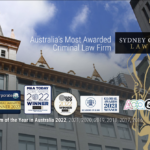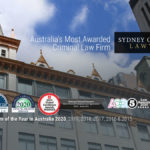How Can I Find a Lawyer in New South Wales?

So, something has happened to bring you into the legal process – whether it’s being arrested or receiving a court attendance notice for a criminal offence, getting a subpoena to produce documents or attend court as a witness, or served with papers for a civil claim.
Or maybe someone has done you wrong and you are considering making an application for an apprehended violence order, commencing family law proceedings or suing for damages – such as for defamation, negligence or breach of contract.
What next?
Reporting the matter to police
Where you’ve had a crime committed against you or are otherwise genuinely fearful for your immediate safety, it’s a good idea to considering reporting the matter to your nearest police station or, in case of an emergency, calling 000.
In other cases, it’s often a good idea to consult a lawyer for advice on the best way forward.
But how do you find the right lawyer in New South Wales for your particular situation?
Identifying the area of law
The law is complex and contains many dozen fields – from criminal law, to family law, to taxation, bankruptcy, medical negligence, personal injury, environmental law, breach of contract, employment law, wills and estates, visas – the list goes on and on.
A good starting point is to consider identifying the area of law you are involved in.
Law Society of New South Wales
The Law Society website has a handy tool that can help you find a lawyer in New South Wales – whether a specific lawyer you are looking for or an Accredited Specialist in a particular field of law.
Accredited specialisation
An Accredited Specialist is a lawyer with at least five years of experience in a specific field of law who has successfully completed a rigorous program including an assessment process which the majority of applicants are unable to pass, in order to obtain certification as a specialist.
He or she is also required to undertake an increased number of continuing education hours and reapply for accreditation every year.
Perhaps it can be thought of like this: you wouldn’t see a general medical practitioner for major surgery – such as a heart operation or even knee surgery – so why would you see a general practitioner if your issue concerns a specific field of law.
After all, a true specialist spends all of his or her time on that field and is therefore likely to be the best at it.
So, it’s often a good idea to look for an Accredited Specialist in the field of law in which you are involved.
The fields of specialist accreditation in New South Wales are:
| Advocacy | Immigration Law |
| Business Law | Local Government and Planning Law |
| Children’s Law | Mediation |
| Commercial Litigation | Personal Injury |
| Criminal Law | Planning and Environment law |
| Dispute Resolution | Property Law |
| Employment and Industrial Law | Taxation Law |
| Family Law | Wills and Estates |
| Government and Administrative Law |
The internet can be a helpful resource
Another way to help find the right lawyer is to start with an internet search and do your homework, asking yourself relevant questions such as:
- Has the lawyer or law firm been around for a long time?
- Have they achieved awards for excellence in the field?
- Do they have a good record of client reviews?
- Have they achieved success in the type of case you are involved in?
- Will they offer me a free appointment, so I can assess whether the lawyer is right for me without having to pay for that privilege?
- Do they offer transparency in terms of fees, such as fixed fees for work they undertake?
Much of this information can be obtained from third party websites, such as from Google reviews, awards programs and other platforms, while a significant amount can also be gleaned from the law firm sites themselves, which may publish recent results, awards and client reviews.
If location is important, you may wish to conduct a specific search, such as find a criminal lawyer near me, or otherwise containing the field of law you’re involved in.
This can narrow the number of firms down to the ones that are more practical for you, especially if you have a busy life. It can also focus on the firms that are the most familiar with the courts and judicial officers in your particular location.
An important decision that shouldn’t be taken lightly
Finding the right lawyer is an important decision, and it’s a good idea to take your time before formally engaging a legal representative.
This may involve attending initial consultations with a number of lawyers and getting a feel of whether they have the right experience, understand your situation including what you wish to achieve, provide sensible advice about the way forward, show empathy and understanding, are likely to fight to produce the results you, are responsive to you (including after your initial meeting), are transparent with fees and generally the right fit for you.
After all, choosing the right lawyer and law firm can make an enormous difference to your future.





